Lessons in technology; roles reversed as students teach seniors
Kewaskum lessons in technology, students teach seniors
A different kind of class is in session this fall at Kewaskum High School. It’s bridging the gap between generations with lessons in technology.
KEWASKUM, Wis. - Time has a funny way of marching on.
"I wouldn’t have the vaguest idea where the Metaverse is at," said 89-year-old Clarence Henkel, laughing. "I don’t know if that’s part of the universe or vice versa."
Either you keep up with the changes or risk falling behind.
"If the telephone rang," remembered Mike Carney, who is 76. "You walked up to the phone, and you picked it off the wall and you said, ‘Hello.’"
The latest and greatest in one era becomes obsolete just a few years down the road.

"And it was rotary," Mike continues. "If you wanted to dial it out it was, ch-ch-ch-cht, ch-ch-ch-cht."
"I heard it was annoying," said 16-year-old Mia Vetter. "Because my grandpa likes to talk about it."
A different kind of class is in session this fall at Kewaskum High School.
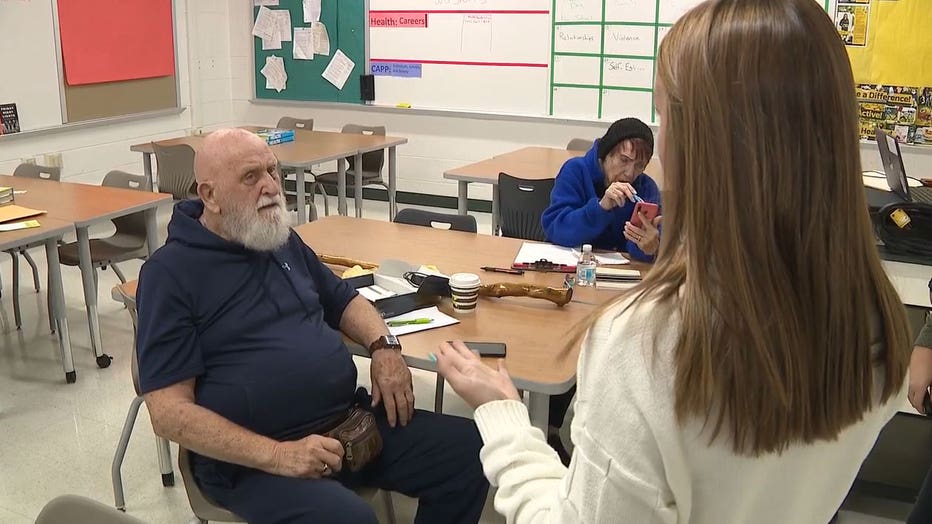
"I was just telling this girl, about how we used to have to get off the couch and go up and turn the little black-and-white TV on and off," Mike said.
SIGN UP TODAY: Get daily headlines, breaking news emails from FOX6 News
It’s bridging the gap between generations.
"Rabbit ears?" said a puzzled Katelyn Scannell. "Maybe during Easter time? I don’t know."
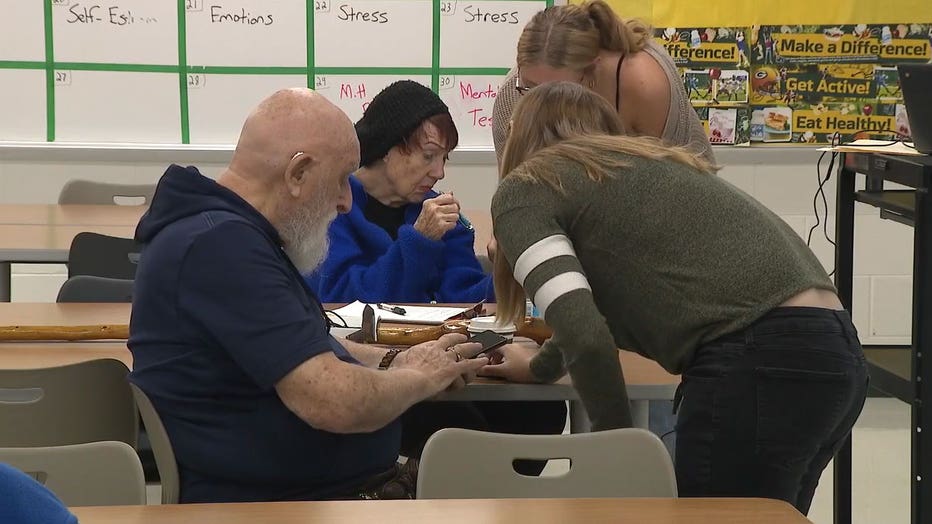
Katelyn and Mia are both juniors at Kewaskum. But once a week, these students become the teachers.
They volunteer to lead a technology class for seniors, partnering with the Aging and Disability Resource Center of Washington County.
"Because the high school students are way smarter than me when it comes to technology," ADRC Director Tammy Anderson said of why she’s organizing – not teaching – the class.
"I don’t have children or nieces or nephews," said class participant Sandy Bohn of West Bend. "So everything I learn, I have to go about getting information somewhere."
The goal is to open the doors to a sometimes intimidating world.
"Every time I touched them in the past," Clarence said of smartphones. "They did something that they weren’t supposed to do."
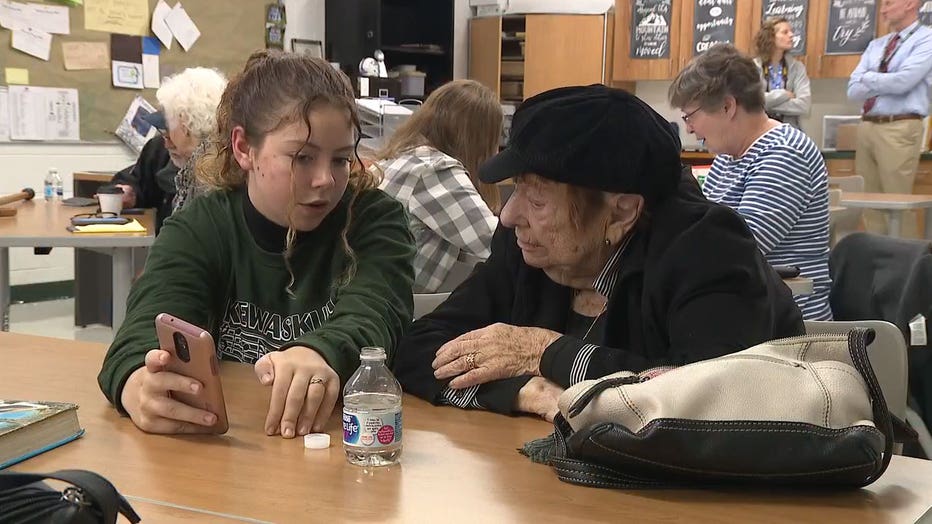
There have been some bumps along the way in getting this pilot program off the ground.
"‘All right. Go to your messages app,’" said Mia, remembering their first class. "And all of a sudden, someone shouts out, ‘What’s an app?’ And so we both had to be taken back by it. ‘Oh, we’re that far behind.’"
In many ways, it’s like learning a new language.
FREE DOWNLOAD: Get breaking news alerts in the FOX6 News app for iOS or Android
"Cookies?" said Clarence. "Well I tell you what, I got some in my bag here."
Like any good startup, the girls recalibrated on the fly – focusing on simple tasks like sending texts, emails and video calls and even the most confounding of concepts – emojis.
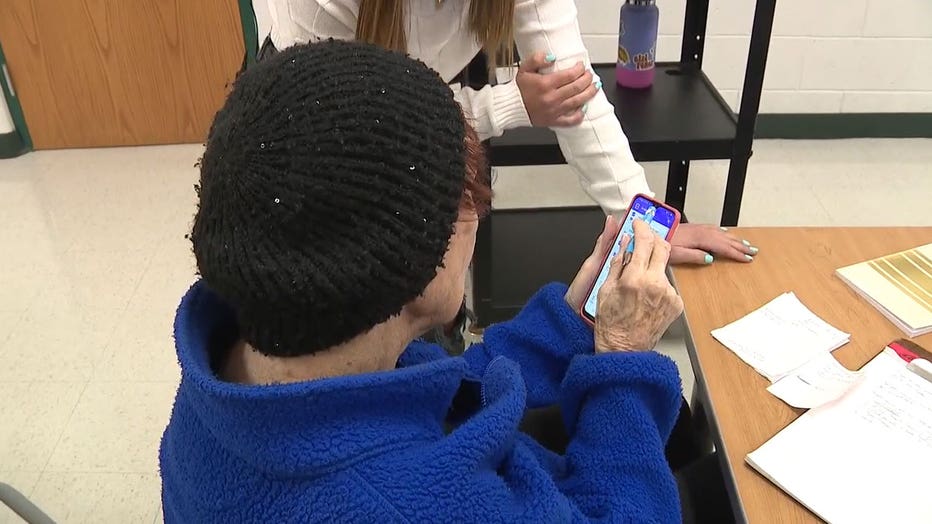
"I had a person," Mia said. "We went through every single emoji, which took some time."
"He wanted to do the laughing-crying emoji," Katelyn said of another encounter. "But he did the actual crying, sad emoji. So his daughter probably thought he had a bad experience."
While the tone of the class is light and self-deprecating, the reason for it is no laughing matter.
"There’s a movement right now focusing on social isolation and loneliness," Tammy explains.
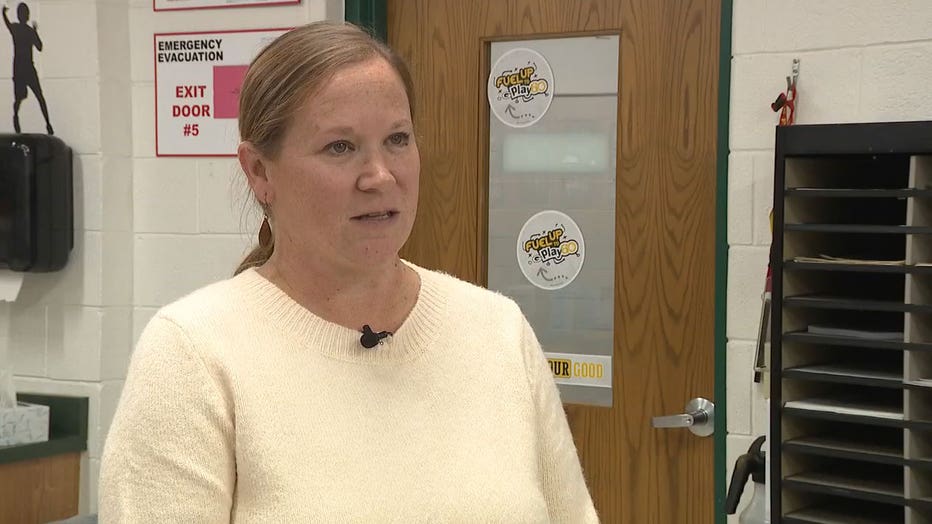
Tammy Anderson
Studies show almost a quarter of U.S. adults aged 65 and up are socially isolated, and living like that significantly increases a person’s risk of premature death from all causes. There’s a 50% increased risk of dementia and around a 30% increased risk of heart disease or stroke.
"If you just sit at home and get cobwebs built on you, what good is that?" said Mike. "I want to learn some of these things."
Leave it to this former teacher to be the model student.
"That third door over there says it," Mike continues, referencing a sign in the classroom. "Never stop learning because life never stops teaching."
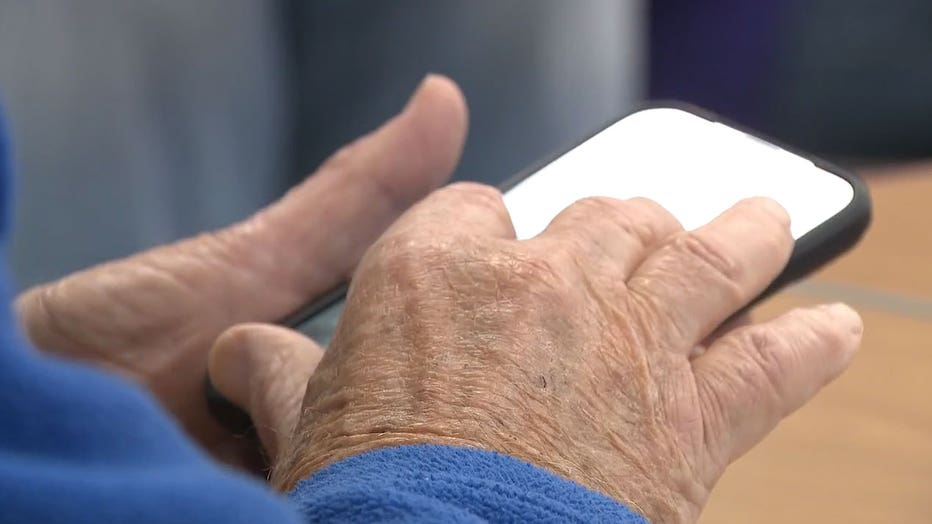
"Some people always think technology is tearing us apart," said Katelyn. "But if you look at it, it’s kind of bringing us together."
While many of these students are in their autumn years, it’s never too late to turn over a new leaf.
Well, except for one topic.
"I’ve heard of TikTok," Clarence said. "But I know nothing about it."
"Um, there’s always a possibility," said Katelyn, laughing. "But I don’t know if it’ll be during this session."
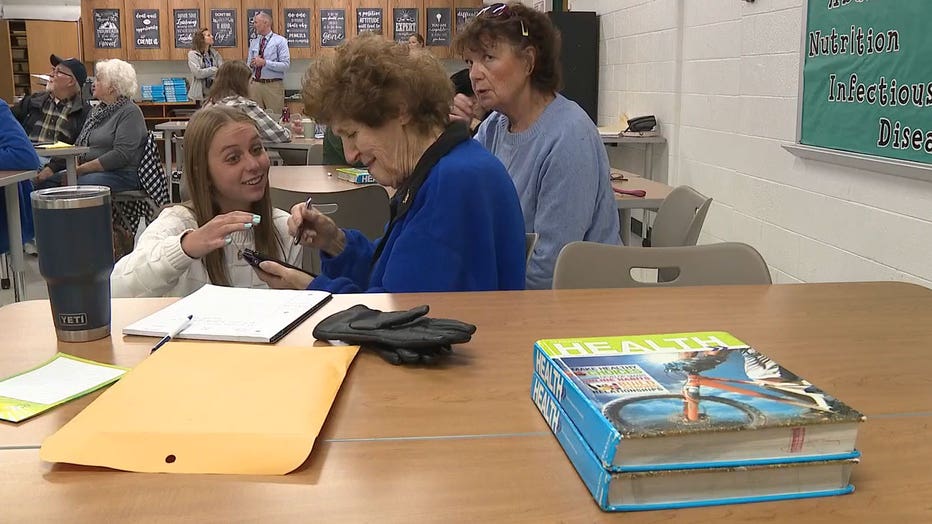
Kewaskum hosted two different sessions this fall, with the last class on Nov. 29. They plan to continue the program next year. In fact, there’s already a waiting list.
The organizers at ADRC hope other schools will consider similar programs, sharing knowledge and experience across generations.

